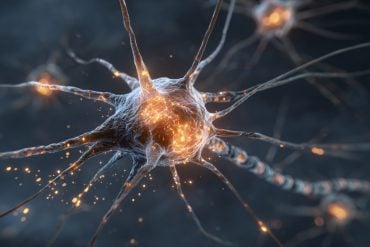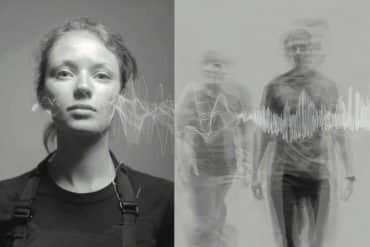Summary: Researchers at UAB have developed an assessment test, that can be completed within 20 minutes, to assess the cognitive capabilities of those with Schizophrenia.
Source: UAB.
Researchers from the Universitat Autònoma de Barcelona (UAB), in collaboration with the University of Oviedo and the Biomedical Research Networking Centre in Mental Health (CIBERSAM), have designed a test which can help determine the cognitive capacities of patients with schizophrenia. The test consists of a battery of assessments chosen by the researchers which permits them, in 20 minutes or less depending on the case, to examine patients’ short-term memory capacities, mental agility and also organisational capacities.
The research, which forms part of the doctoral thesis of Sílvia Zaragoza Domingo, is the result of a pioneering study lasting 6 months in which 257 professionals worked with a sample of 700 individuals representative of the population diagnosed with schizophrenia in Spain. The study, which goes by the name of EPICOG-SCH, identified a battery of four assessments in order to conduct the test.
One of the main novelties of the battery of assessments chosen by researchers and led by Silvia Zaragoza lies in the fact that, in addition to being short, they consist in tests available to doctors and psychologists experts in mental health. Moreover, the tests are available in several languages, which makes it easier to use them with patients of different origins. Another advantage is that they are easy to administer, and therefore facilitates being used by health professionals in order to assess patients with schizophrenia. The test permits health professionals to assess, study and comment on symptoms of the disorder which normally are not taken into account and which could serve to treat each case in the best possible manner.

“In schizophrenia, it is desirable for the patient to be as independent and function as best possible, although that does not always happen”, explains Sílvia Zaragoza. She goes on to say that “this test allows each patient to better adapt to his life. For example, if a patient is slower mentally, but short-term memory is not affected, he or she will have more chances of leading an independent life than someone whose memory is also affected”.
This battery of assessments represents a very important step towards offering patients specific examinations, which can be conducted through their regular mental health centres or private centres. After an initial examination, the clinics can also conduct a follow-up of patients and also confirm whether changes in medications worsen attention span or memory, a common complaint among patients at their routine visits.
The test will be developed and commercialised by Psyncro (Neuropsychological Research Organization sl), a company founded by Sílvia Zaragoza. Her doctoral supervisor and advisor were CIBERSAM researchers from the UAB Department of Psychiatry Antoni Bulbena and Víctor Pérez, while professors from the University of Girona Joan Vilalta and Manuel de Gracia directed her academic work.
Source: UAB
Image Source: NeuroscienceNews.com image is adapted from the UAB news release.
Original Research: Full open access research for “EPICOG-SCH: A brief battery to screen cognitive impact of schizophrenia in stable outpatients” by Silvia Zaragoza Domingo, Julio Bobes, Maria-Paz García-Portilla, and Claudia Morralla in Schizophrenia Research: Cognition. Published online June 8 2017 doi:10.1016/j.scog.2017.03.001
[cbtabs][cbtab title=”MLA”]UAB “20 Minute Test Determines Attention and Memory Capacity in Schizophrenia Patients.” NeuroscienceNews. NeuroscienceNews, 17 September 2017.
<https://neurosciencenews.com/schizophrenia-attention-memory-test-7506/>.[/cbtab][cbtab title=”APA”]UAB (2017, September 17). 20 Minute Test Determines Attention and Memory Capacity in Schizophrenia Patients. NeuroscienceNew. Retrieved September 17, 2017 from https://neurosciencenews.com/schizophrenia-attention-memory-test-7506/[/cbtab][cbtab title=”Chicago”]UAB “20 Minute Test Determines Attention and Memory Capacity in Schizophrenia Patients.” https://neurosciencenews.com/schizophrenia-attention-memory-test-7506/ (accessed September 17, 2017).[/cbtab][/cbtabs]
Abstract
EPICOG-SCH: A brief battery to screen cognitive impact of schizophrenia in stable outpatients
Brief batteries in schizophrenia, are needed to screen for the cognitive impact of schizophrenia. We aimed to validate and co-norm the Epidemiological Study of Cognitive Impairment in Schizophrenia (EPICOG-SCH) derived brief cognitive battery. A cross-sectional outpatient evaluation was conducted of six-hundred-seventy-two patients recruited from 234 centers. The brief battery included well-known subtests available worldwide that cover cognitive domains related to functional outcomes: WAIS-III-Letter-Number-Sequencing-LNS, Category Fluency Test-CFT, Logical-Memory Immediate Recall-LM, and Digit-Symbol-Coding-DSC. CGI-SCH Severity and WHO-DAS-S were used to assess clinical severity and functional impairment, respectively. Unit Composite Score (UCS) and functional regression-weighted Composite Scores (FWCS) were obtained; discriminant properties of FWCS to identify patients with different levels of functional disability were analyzed using receiver-operating characteristic (ROC) technique. The battery showed good internal consistency, Cronbach’s alpha = 0.78. The differences between cognitive performance across CGI-SCH severity level subscales ranged from 0.5 to 1 SD. Discriminant capacity of the battery in identifying patients with up to moderate disability levels showed fair discriminant accuracy with areas under the curve (AUC) > 0.70, p < 0.0001. An FWCS mean cut-off score ≥ 100 showed likelihood ratios (LR) up to 4.7, with an LR + of 2.3 and a LR − of 0.5. An FWCS cut-off ≥ 96 provided the best balance between sensitivity (0.74) and specificity (0.62).
The EPICOG-SCH proved to be a useful brief tool to screen for the cognitive impact of schizophrenia, and its regression-weighted Composite Score was an efficient complement to clinical interviews for confirming patients’ potential functional outcomes and can be useful for monitoring cognition during routine outpatient follow-up visits.
“EPICOG-SCH: A brief battery to screen cognitive impact of schizophrenia in stable outpatients” by Silvia Zaragoza Domingo, Julio Bobes, Maria-Paz García-Portilla, and Claudia Morralla in Schizophrenia Research: Cognition. Published online June 8 2017 doi:10.1016/j.scog.2017.03.001






